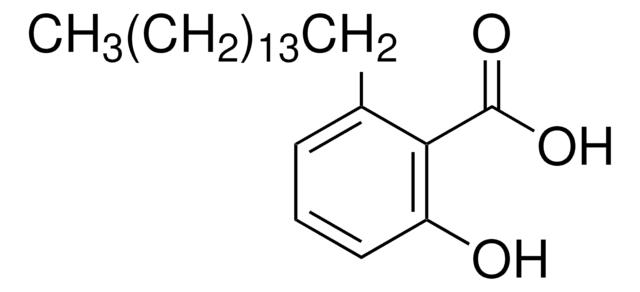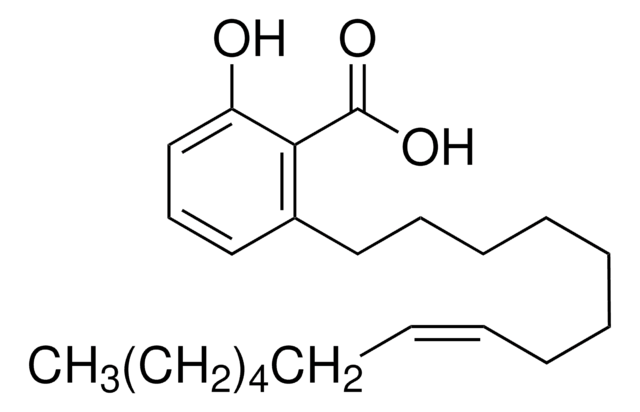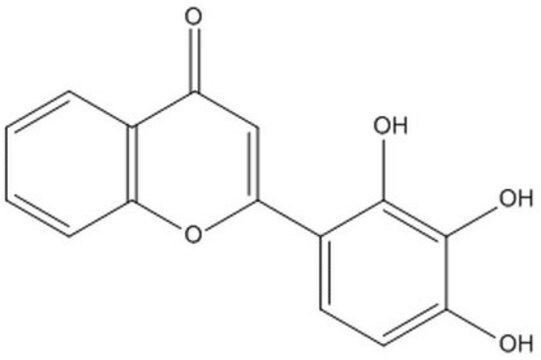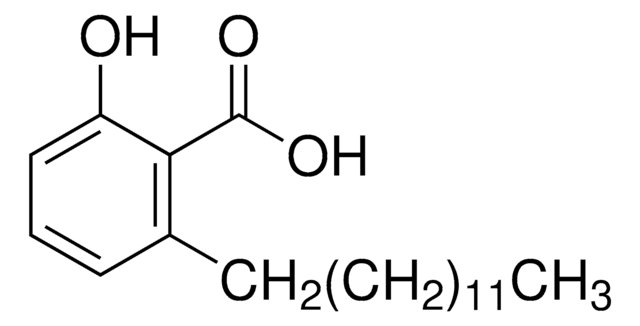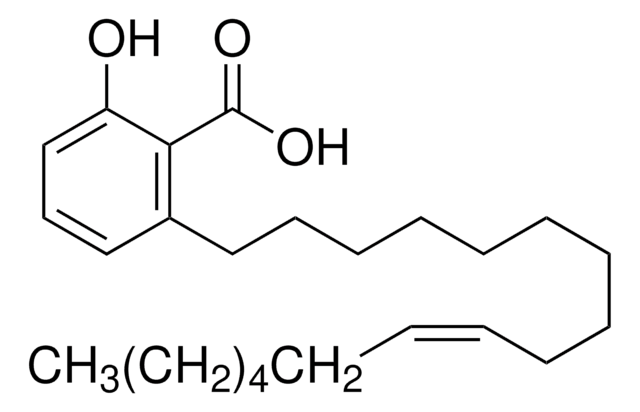345887
Ginkgolic Acid (15:1)
A cell-permeable anacardic acid analog that inhibits protein SUMO .
Synonyme(s) :
Ginkgolic Acid (15:1), (Z)-6-(Pentadec-8-enyl)-2-hydroxybenzoic acid, Histone Acetyltransferase Inhibitor VI, PCAF Inhibitor II, SUMOylation Inhibitor, HAT Inhibitor VI, Histone Acetyltransferase Inhibitor VI, PCAF Inhibitor II, SUMOylation Inhibitor, (Z)-6-(Pentadec-8-enyl)-2-hydroxybenzoic acid, HAT Inhibitor VI
About This Item
Produits recommandés
Niveau de qualité
Essai
≥98% (HPLC)
Forme
solid
Fabricant/nom de marque
Calbiochem®
Conditions de stockage
OK to freeze
protect from light
Couleur
white
Solubilité
DMSO: 100 mg/mL
ethanol: 100 mg/mL
Conditions d'expédition
ambient
Température de stockage
−20°C
InChI
1S/C22H34O3/c1-2-3-4-5-6-7-8-9-10-11-12-13-14-16-19-17-15-18-20(23)21(19)22(24)25/h7-8,15,17-18,23H,2-6,9-14,16H2,1H3,(H,24,25)/b8-7-
Clé InChI
YXHVCZZLWZYHSA-FPLPWBNLSA-N
Description générale
Conditionnement
Avertissement
Reconstitution
Autres remarques
Informations légales
Mention d'avertissement
Warning
Mentions de danger
Conseils de prudence
Classification des risques
Aquatic Chronic 4 - Skin Sens. 1
Code de la classe de stockage
11 - Combustible Solids
Classe de danger pour l'eau (WGK)
WGK 3
Point d'éclair (°F)
509.9 °F - (calculated)
Point d'éclair (°C)
265.5 °C - (calculated)
Certificats d'analyse (COA)
Recherchez un Certificats d'analyse (COA) en saisissant le numéro de lot du produit. Les numéros de lot figurent sur l'étiquette du produit après les mots "Lot" ou "Batch".
Déjà en possession de ce produit ?
Retrouvez la documentation relative aux produits que vous avez récemment achetés dans la Bibliothèque de documents.
Les clients ont également consulté
Notre équipe de scientifiques dispose d'une expérience dans tous les secteurs de la recherche, notamment en sciences de la vie, science des matériaux, synthèse chimique, chromatographie, analyse et dans de nombreux autres domaines..
Contacter notre Service technique